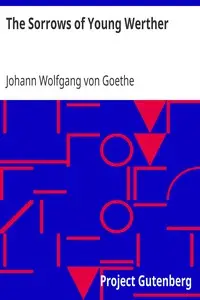"Edward the Second" by Christopher Marlowe is a play that tells the story of King Edward II of England and the problems he faced while ruling. The story is mostly about Edward's deep friendship with Piers Gaveston and how that relationship caused conflict with the nobles. They were not happy with Gaveston being so close to the king and having so much power. The play shows how Edward's personal feelings clashed with his duty as king, causing political problems, anger among the barons, and eventually leading to a big fight for power and control of the throne. The play begins with Gaveston coming back and the immediate tension his return creates, setting the scene for a tragic story of love, loyalty, and betrayal.

Edward the Second
By Christopher Marlowe
A king’s scandalous affection for his closest companion ignites a political firestorm, threatening his crown and the stability of England.
Summary
About the AuthorChristopher Marlowe, also known as Kit Marlowe, was an English playwright, poet, and translator of the Elizabethan era. Marlowe is among the most famous of the Elizabethan playwrights. Based upon the "many imitations" of his play Tamburlaine, modern scholars consider him to have been the foremost dramatist in London in the years just before his mysterious early death. Some scholars also believe that he greatly influenced William Shakespeare, who was baptised in the same year as Marlowe and later succeeded him as the preeminent Elizabethan playwright. Marlowe was the first to achieve critical reputation for his use of blank verse, which became the standard for the era. His plays are distinguished by their overreaching protagonists. Themes found within Marlowe's literary works have been noted as humanistic with realistic emotions, which some scholars find difficult to reconcile with Marlowe's "anti-intellectualism" and his catering to the prurient tastes of his Elizabethan audiences for generous displays of extreme physical violence, cruelty, and bloodshed.
Christopher Marlowe, also known as Kit Marlowe, was an English playwright, poet, and translator of the Elizabethan era. Marlowe is among the most famous of the Elizabethan playwrights. Based upon the "many imitations" of his play Tamburlaine, modern scholars consider him to have been the foremost dramatist in London in the years just before his mysterious early death. Some scholars also believe that he greatly influenced William Shakespeare, who was baptised in the same year as Marlowe and later succeeded him as the preeminent Elizabethan playwright. Marlowe was the first to achieve critical reputation for his use of blank verse, which became the standard for the era. His plays are distinguished by their overreaching protagonists. Themes found within Marlowe's literary works have been noted as humanistic with realistic emotions, which some scholars find difficult to reconcile with Marlowe's "anti-intellectualism" and his catering to the prurient tastes of his Elizabethan audiences for generous displays of extreme physical violence, cruelty, and bloodshed.


















![Faust [part 1]. Translated Into English in the Original Metres by Johann Wolfgang von Goethe](https://cdn.a2-host.cloud/y-MkV3aFt2tKEbdp7VCDtzUhX9qKc82D4dZAE78xr7U/rs:fill:215:325:0/g:ce/aHR0cHM6Ly9zcC1hc3NldHMuczMudXMtd2VzdC0wMDQuYmFja2JsYXplYjIuY29tL2Jvb2svMTQ1OTEvRmF1c3RfcGFydF8xX1RyYW5zbGF0ZWRfSW50b19FbmdsaXNoX2luX3RoZV9PcmlnaW5hbF9NZXRyZXNfY292ZXIuanBn.webp)
